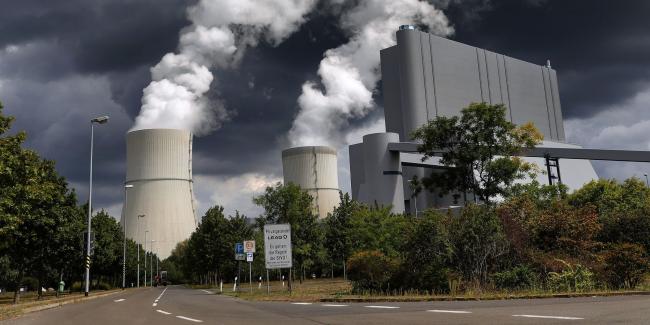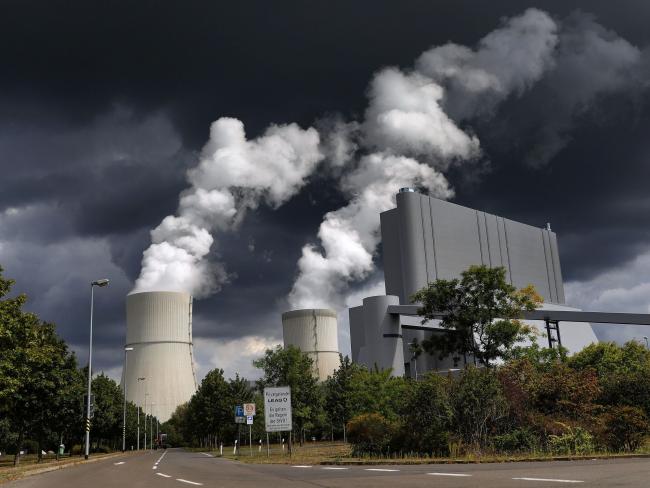(Bloomberg) -- Chancellor Angela Merkel clinched a deal with Germany’s coal-producing states for Europe’s largest economy to begin phasing out the dirty fossil fuel, leaving an agreement with utilities as the last major stumbling block before plants and mines start to close.
In talks that began Wednesday evening and lasted well into the night, the government set out a timeline for shutting down the country’s coal-fired power generation by 2038. As part of the deal, the government reaffirmed its legal commitment to disburse the 40 billion euros ($45 billion) it had previously promised as compensation for regional infrastructure projects.
In addition, Berlin said it aims to get a coal exit law approved by the first half of this year, according to a statement from the government’s press office.
The deal agreed to by four state premiers doesn’t mention compensation to power utilities, which was under separate negotiations for weeks. Mine operators and power utilities must still give their final approval.
“It was a long night -- it lasted until 2 a.m. -- but we were able to achieve a sensible agreement,” Armin Laschet, premier of the state of North-Rhine Westphalia, said in an interview with Deutschlandfunk radio. “The time frame that we’ve agreed on is ambitious, but realistic.”
Laschet estimates that around 3,000 jobs in his state will be affected by the closures. The premier also confirmed closures will take place more rapidly in west German states. The biggest resistance to the plan had come from states in the former communist East, which relies most heavily on coal and has a lower per capita income than the western part of the country.
Merkel has faced ongoing pressure to slash carbon emissions more swiftly. Climate issues are top of voter concerns, polls show, and most approve of pulling out of coal. Germany will miss its 2020 targets under the Paris Agreement and could fall further behind if it doesn’t start closing coal-fired power plants soon.
Merkel’s predicament on the coal issue in part feeds into a broader political challenge, with the Greens party and the far-right Alternative for Germany gaining support on both sides of the political spectrum to squeeze Germany’s traditional mainstream parties, including her Christian Democrats. The AfD has been particularly strong in the eastern mining states.
Under the agreement announced early on Thursday, LEAG’s Jaenschwalde power plant is to be transformed into a gas-fired unit. The Hambach Forest, which was threatened with destruction to make way for an RWE lignite mine, will be preserved, according to the government.
The federal government will also pay for retraining programs for power and lignite mine workers affected by plant closures.
The deal is part of a broader effort this week to showcase measures to combat climate change. On Tuesday, the government announced massive investment in railways so as to lure passengers from cars and planes, which have a higher carbon footprint.

